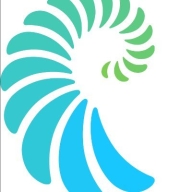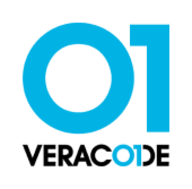Easy to configure, stable, and good vulnerability detectionVeracode's ability to prevent vulnerable code from being deployed into production is crucial. Typically, if a dependency we use has security issues or concerns, Veracode suggests upgrading to a more secure version. For example, if we're using a PayPal dependency with version 1.3 and it has a security bug, Veracode suggests upgrading to version 1.4 which fixes the issue. We usually make our project compatible with version 1.4, but sometimes Veracode recommends removing the dependent code altogether and adding the updated dependency from another repository. Veracode provides suggestions for resolving security issues and we implement them in our code after resolving any conflicts. We run the Veracode scan again and if it fails, we do not deploy the code to production. This is critical as it ensures that security issues such as bugs and fixes are addressed. Veracode consistently assists us in identifying security issues in third-party dependencies, while also ensuring the maintenance of code quality. Preventing security bugs and threats in our code improves the overall code quality of our company, which is essential given the significant concerns surrounding security today. Veracode's policy reporting is helpful for ensuring compliance with industry standards and regulations. Veracode's solution plays a major role in achieving compliance, including HIPAA compliance. Without Veracode scans, identifying security threats and third-party dependencies would be a tedious task for DevOps professionals. Veracode provides visibility into the status of our application during every phase of development, including continuous integration and continuous development CI/CD pipeline stages. This includes builds, package creation for deployment, and various enrollment stages such as develop, queue, stage, above, and production enrollment. Prior to each stage, a Veracode scan is run. This can be accessed through Jenkins or the CI/CD pipeline by clicking on the Veracode scan option, which provides a detailed report highlighting any security issues and concerns. Veracode performs statistical analysis, dynamic analysis, software composition analysis, and manual penetration tests throughout our software development life cycle. Veracode scans not only for third-party security issues but also for possible issues in our own code. This occurs in every phase of development, including the SDLC. For example, if we use an encryption algorithm with a private or public key that is easy to decode, Veracode will identify this as an error or warning in the report and suggest using multiple layers of encryption for the keys. The entire CI/CD process is part of DevOps. Therefore, the responsibility of configuring the Veracode tool usually falls on the DevOps professional. It is essential to integrate Veracode with the CI/CD pipeline within the project to ensure it is always incorporated. Whenever there is a priority or mandatory check required before deployment, Veracode should run beforehand. This integration is carried out by our DevSecOps team. Veracode's false positive rate is good, as it helps us identify possible security concerns in our code. In my opinion, it is advisable to run a Veracode scan on all codes. I have worked in the IT industry for five years, and I have observed that Veracode has been implemented in every project I have worked on. If a tool is improving our code quality and providing us with insights into potential security issues, it is always beneficial to use it. The false positive rate boosts our developers' confidence in Veracode when addressing vulnerabilities. Veracode also provides suggestions when there is a security issue with a dependency in version 1.7, prompting us to consider using version 1.8, which does not have security issues. This process involves the developers, and it leaves a positive impression on our managers and clients, demonstrating our commitment to security. We can show them that we were previously using version 1.7 but updated to version 1.8 after identifying the security issue with Veracode's help. Unfortunately, there is no centralized platform to check for network issues or problems with dependencies and versions. Veracode provides a centralized solution where we can scan our project and receive results. Veracode has helped our organization address flaws in our software and automation processes. Its positive impact has been reflected in our ROI, which increased when we started using Veracode. Without Veracode, we would be susceptible to security issues and potential hacking. However, after implementing Veracode scans, we have not encountered any such problems. It is critical for us to use Veracode because we capture sensitive data such as pharmacy information for real-time users, including patient prescriptions and refill schedules. This sensitive data could pose a significant problem if our code or software has security vulnerabilities. Fortunately, Veracode scans allow us to prevent such issues. Veracode has helped our developers save time by providing a solution that eliminates the need to manually check for dependencies or search the internet for information on which dependencies have issues. Instead, Veracode provides a detailed report that identifies the issues and recommends the appropriate version to use. Using Veracode ensures the quality of our code and also saves time for our developers. In my career of five years, Veracode has helped me resolve code issues eight times. Veracode has reduced our SecOps costs by identifying security vulnerabilities in our code. Without Veracode, if we were to go live with these issues, it could result in a breach of our encrypted data, potentially causing significant harm to our organization. This would require significant time and cost to resolve the issue and restore the data. Veracode has improved the quality of our code and reduced the risk of such incidents occurring, thereby minimizing their impact on our organization.


